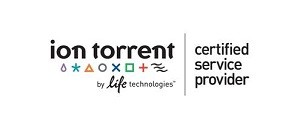Breast cancer is the most common form of cancer in females (rarely in males). Genetic and other factors contribute to increase breast cancer risk, the main hereditary risk factor of which is the age of first diagnosis. In a proportion of 5-10% of all cases, the BRCA1 and BRCA2 genes are involved and mutations in these genes are detected in ~80% of familial types (average 25-30%) of breast cancer, i.e. when there is a family history of >2 affected members on the same side of the family and with onset of illness <50-55 years. Also, mutation carriers of one of these genes have ~10 times greater risk to manifest ovarian cancer. In general, molecular genetic testing for BRCA1 and BRCA2 mutations is recommended for individuals with an estimated lifetime risk of >10% (ASCO guidelines).
Breast and ovarian cancer BRCA1 and BRCA2 NGS panel

It is important to mention that American Society of Clinical Oncology (ASCO) and the National Comprehensive Cancer Network have developed specific guidelines, which specify the genetic testing criteria for BRCA1 and BRCA2 as well as other recommended actions depending on the test results. The mode of inheritance for the vast majority of cases is autosomal dominant with variable expressivity and penetrance, meaning that a person with a mutation in one of these two genes will not necessarily develop the disease or will develop varying clinical symptoms and disease severity.
Especially for BRCA1 and BRCA2 genetic testing, there are no specific mutations, which occur particularly frequently in patients, except perhaps in cases of isolated populations (e.g. Ashkenazi Jews). Given the increased importance of genetic testing and the heterogeneity of the disease, molecular genetic testing for mutations in these genes, which are relatively large in size, must be as comprehensive as possible, covering all possible mutations with full analysis of the DNA sequence of both genes. Therefore, screening for a few ‘common’ mutations of these genes in the vast majority of cases has no diagnostic value and is not recommended.
For reasons of cost, the analysis may be performed in two stages.
Step 1: ~ 40% of known mutations
This first stage involves the analysis of both genes, selectively covering ~30- 40% of pathogenic mutations in both genes. If a known pathogenic mutation is detected in this stage, genetic testing is considered complete. However, If no mutation is detected, full mutation testing for both genes should be performed.
Step 2: Complete genomic analysis for mutations in both genes
We perform DNA sequence analysis via Next Generation Sequencing (NGS) of all of exons of the BRCA1 & BRCA2 genes, plus additional MLPA analysis for the detection of deletions/duplications of both genes, thus allowing us to detect >99% of all pathogenic mutations .
Please note that InterGenetics participates successfully in the EMQN external quality control (EQA) scheme for genetic testing of BRCA1 and BRCA2.
InterGenetics has been certified as an Ion Torrent™ Certified Service Provider for Ion AmpliSeq sequencing on Ion Proton platform
